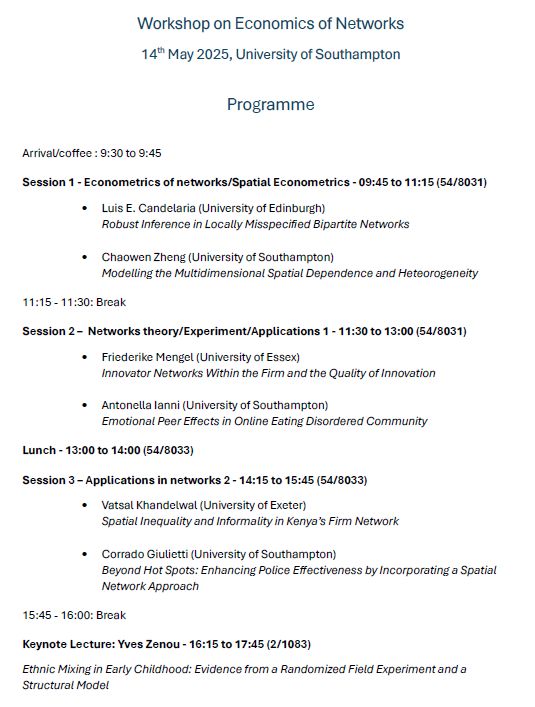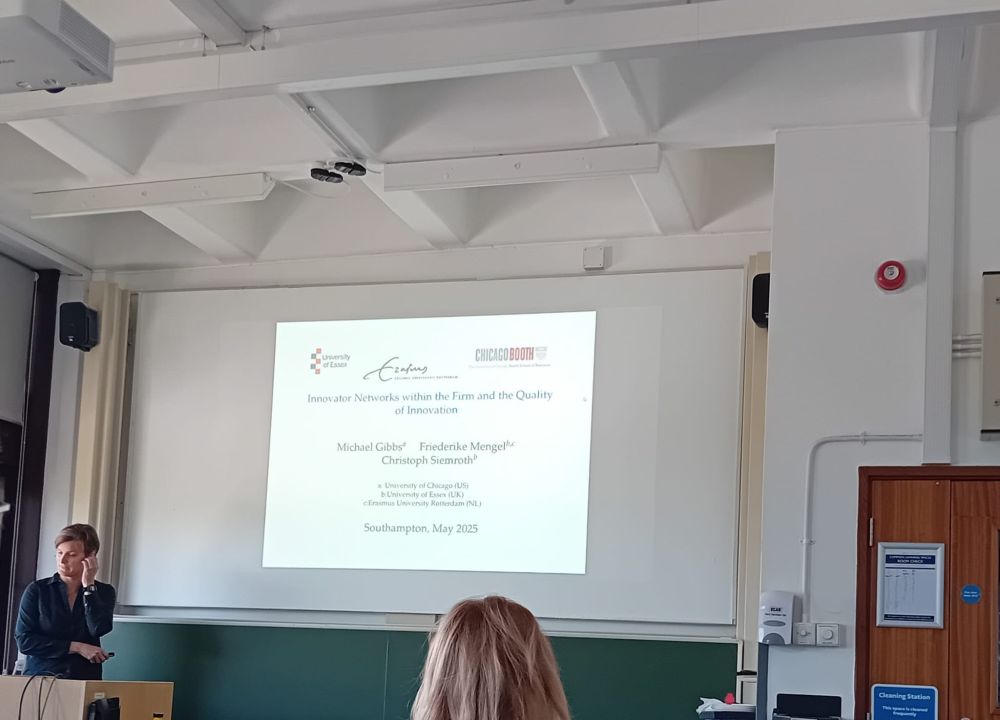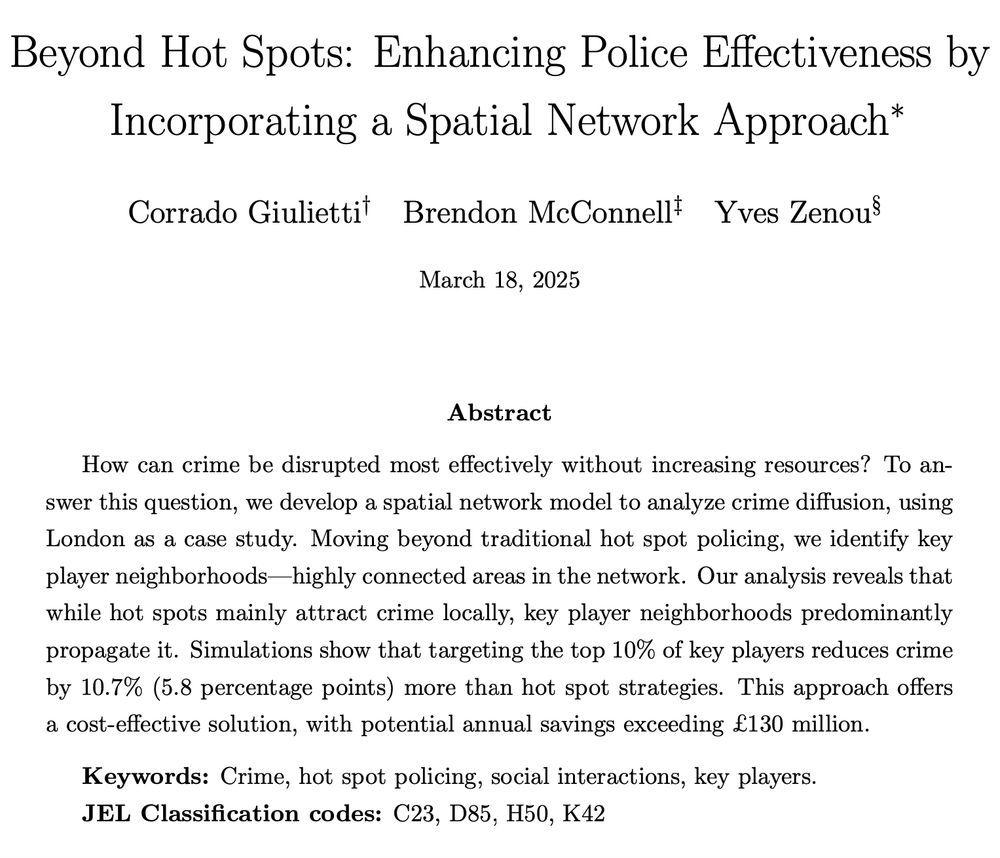Reposted by: Corrado Giulietti
🆕 RFBerlin-CReAM Discussion Paper: @corradogiulietti.bsky.social, @brendonmcconnell.bsky.social and @yveszenou.bsky.social propose a new way to fight urban crime by integrating network theory into policing strategies. 🧵

Reposted by: Corrado Giulietti
Many congrats to Prof Gerry Stoker on his OBE and Prof William Powrie for his CBE in the King's Birthday Honours! 🎖️
William is recognised for services to engineering and Gerry to local governance and the study of democracy.
Well done both! 👏
#WeAreUoS #KingsBirthdayHonours
William is recognised for services to engineering and Gerry to local governance and the study of democracy.
Well done both! 👏
#WeAreUoS #KingsBirthdayHonours


Reposted by: Corrado Giulietti
Just wrapped up an amazing workshop on Network Economics today! 🚀💡
Great insights, engaging dialogue, and lots to think about. Big thanks to everyone who made it happen! #econresearch #econtwitter #workshop #econsky
Great insights, engaging dialogue, and lots to think about. Big thanks to everyone who made it happen! #econresearch #econtwitter #workshop #econsky


And here is the link to the CEPR Discussion Paper for more details cepr.org/publications...
Why? Hot spot neighborhoods work as crime attractors: they draw offenders from surrounding neighborhoods. On the other hand key player neighborhoods function as crime dissipators: offenders are more likely to commit crimes elsewhere. Sociodemographic and built environment characteristics matter.


Is hot spot policing the most effective strategy to reduce crime? We show that re-targeting resources from some hot spots to neighborhoods with higher intercentrality produces more significant disruptions to property crime (but not to violent crime, which spreads less through the network).

Reposted by: Corrado Giulietti
first draft out today: how to use the spatial network structure of crime in a city to improve upon the standard hot spot policing approach, joint with @corrradogiulietti.bsky.social and Yves Zenou. [1/3]
